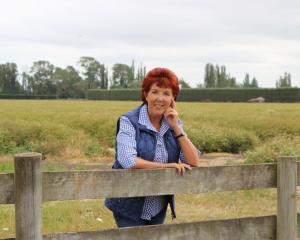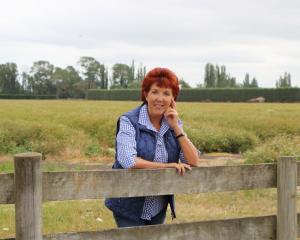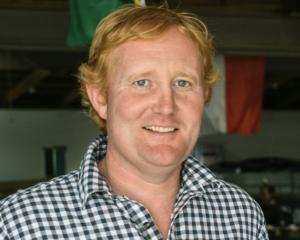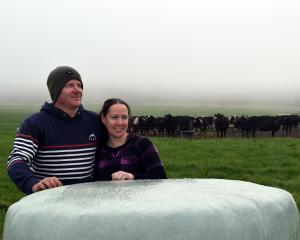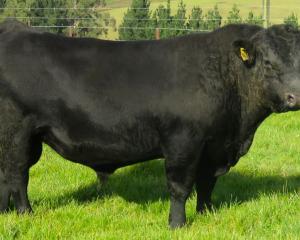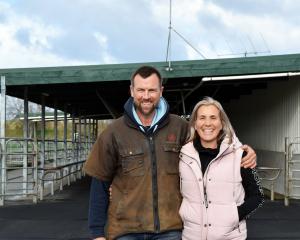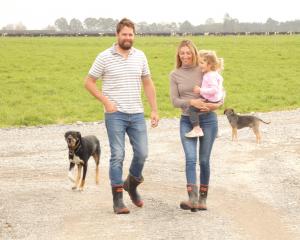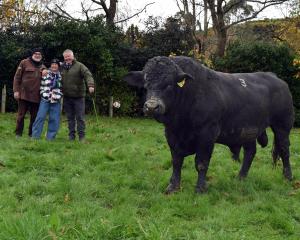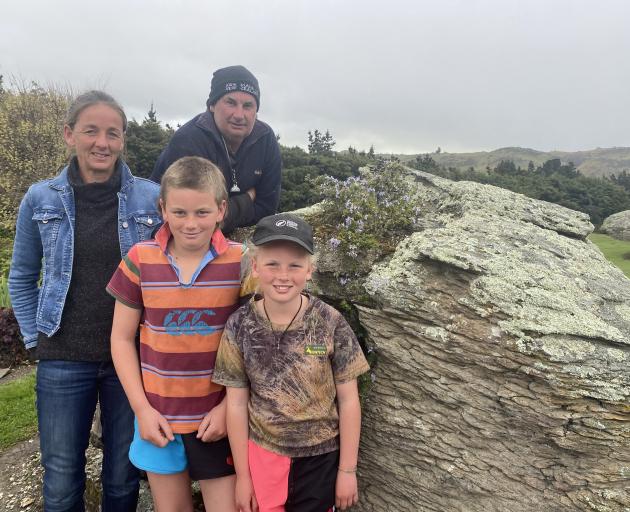
It is one that takes in live goat mustering and trapping possums, before settling on shearing which opened plenty of opportunities for Mark to travel the world and save enough money to get on to the property ladder.
Mark grew up in Marlborough. His father was an electrician and his mother worked in hospital administration. With little exposure to farming itself, Mark just knew school was not for him and he needed to be working outdoors.
His mother said he was allowed to leave if he had a good job to go to.
“I put an ad in the local paper, it said ‘energetic 16-year-old seeking full time farm position’.”
He got three responses from the ad and started life as a shepherd “green as a grasshopper”.
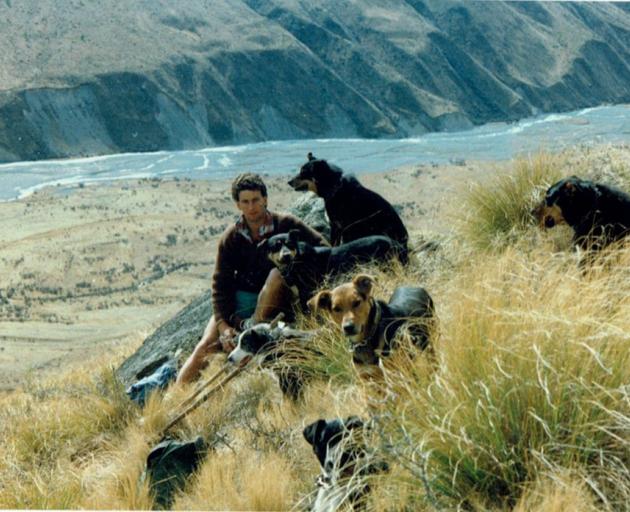
“It wasn’t the easiest occupation — anyone who’s worked with wild goats will know that.”
He later teamed up with a helicopter company capturing goats and a few deer.
Once the price had dropped out of the wild deer and goat market, he went back to shepherding for a few years at various stations in Canterbury and Southland and then got a job on the two-man Hawea mustering run. It was a highly sought-after position which saw him working full time between six Central Otago stations.
“There was very little casual labour around. We would do all manner of stock work depending on the time of year.”
The $62 a day Mark was bringing home from the mustering run did not compare to what he discovered he could be making as a shearer.
“Shearers were making $1 a sheep, which was pretty darn good.”
He headed to Oamaru, where his parents were living, and attended a polytechnic course, learning the skill of the shearing trade and looked for work around the North Otago area.
What followed has been years of shearing toil around the region and a total of 12 seasons of travel to the UK and US working as a shearer.
“The exchange rate was really good; I could triple and double my earnings when I brought it back to New Zealand.”

While still living at home and in his late 20s, Mark fondly recalls getting in the door from an overseas stint, and clippings of properties for sale were spread out over the dinner table.
“I said to mum, ‘Oh are you guys looking to buy a house?’ And she said ‘No, but you are’.”
He was able to almost pay for his first home outright.
“I did it up and sold it on, making a healthy wee profit.”
This first step was his start on the property ladder; each acquisition a step up from the previous in terms of scale and farming capacity.
Following the sale of his first home, and while Mark was running the shearing gang, there was the purchase of two 15ha irrigated properties in North Otago; the sale of those got them into a 115ha farm in Omakau where they worked off-farm to supplement their income.
This was followed by a 450ha block in Oturehua for not quite a year, and then a shift to Mt Helena near Dunback for five years, before they finally moved to their current farm, Rockburn in the Nenthorn Valley, near Macraes, in 2017.
“It’s been about good timing, a little bit of calculated risk and heap of hard work.”
Mark’s partner Rachael Armstrong is off a farm in Becks. The couple met in a shearing shed in the US and their love of travel and work, he on the handpiece and she as a rousie, carried on for a couple years before they bought at Omakau and then had their children Liam (12) and Paige (8).
With each farm the couple have gone into, debt levels were high and finances tight.
“We are so lucky we have had two exceptional bankers who backed us when others wouldn’t. Lochie McNally got us into our first place and more recently Darren Homer, we’ll always be grateful to them. Our families have always been supportive, but financially we’ve had to do it all ourselves,” Mark said.
“Mark’s the risk taker, I’m not, so without his push we wouldn’t be where we are. I completely trust his judgement. I have always enjoyed farming and so long as the kids are happy and don’t miss out on opportunities, I am OK. As the kids have gotten older, I have been able to be more involved in the running of the farm,’’ Rachel said.
‘‘We work together a lot, we have the odd disagreement but we’re getting better,’’ she said.
Farm improvement has been the couple’s mantra. Every place they have bought has had kilometres of fencing subdivision or maintenance.
“Oturehua was very run down. We bought a tractor, a post driver and some discs and set to work fixing the place up,’’ Mark said.
Mt Helena had excellent agronomy but “buggered fences”, no covered yards, no power, and no house; “we were close to sleeping in the boat for a while there”, he said.
They did manage to find what Rachael recalls was a “rough little rental house” on the outskirts of Palmerston.
Rockburn is 750ha and runs 4300 stock units. True to form they have got stuck into development. Setting up K-line irrigation on 100ha of the farm has been key to realising the farm’s potential; they have been able to fatten their own lambs as well as buy in stores, and next season they will have 18ha of fodder beet which they plan to fatten 200 cattle on.
Rockburn is not the final stop for the family. All this hard toil has come at a cost; very little down time and years without going on a family holiday.
“When Liam goes off to boarding school, we would like to downsize a little, get rid of a bit of debt, pay for the kids’ schooling and enjoy life a bit more,” he said.
Mark’s advice for those trying to find a way into farm ownership: “Don’t give up; don’t listen to those who say you won’t get there. I, too, was told that by a banker and I am glad I didn’t listen.
“If I was a young fella today, I would be getting into shearing; the money is really good and there is a huge shortage of people willing to do the work.”
- By Alice Scott



